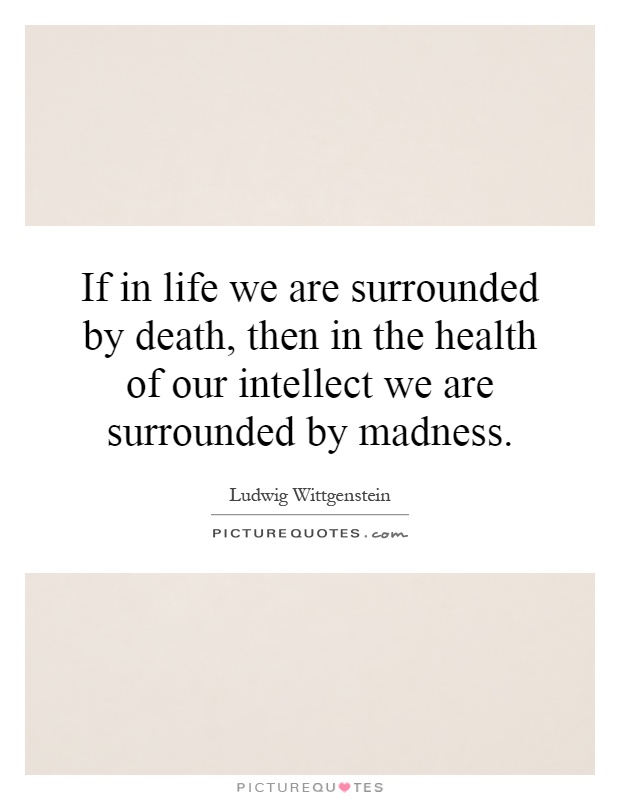If in life we are surrounded by death, then in the health of our intellect we are surrounded by madness

If in life we are surrounded by death, then in the health of our intellect we are surrounded by madness
Ludwig Wittgenstein, a renowned Austrian-British philosopher, is often associated with the quote, “If in life we are surrounded by death, then in the health of our intellect we are surrounded by madness.” This quote reflects Wittgenstein’s belief in the inherent complexity and ambiguity of human thought and language. Wittgenstein was deeply interested in the nature of language and its relationship to reality, and he believed that the limits of language were also the limits of our understanding of the world.Wittgenstein’s philosophy can be seen as a response to the existential crisis of the 20th century, marked by two world wars and the rise of totalitarian regimes. In this context, the idea of being surrounded by death can be interpreted as a metaphor for the pervasive sense of despair and destruction that characterized the era. Wittgenstein believed that language was a tool for navigating this chaos, but also recognized its limitations in capturing the full complexity of human experience.
The notion of being surrounded by madness in the health of our intellect can be understood as a reflection of the inherent irrationality and unpredictability of human thought. Wittgenstein was deeply skeptical of the idea that language could accurately represent reality, and he believed that our understanding of the world was always limited by our own subjective perspectives. In this sense, the health of our intellect is constantly threatened by the madness of our own minds, which are shaped by our individual experiences and biases.
Wittgenstein’s philosophy is characterized by its emphasis on the importance of language in shaping our understanding of the world. He believed that language was not simply a tool for communication, but also a fundamental aspect of our cognitive processes. In this sense, the quote can be seen as a reflection of Wittgenstein’s belief in the power of language to both illuminate and obscure our understanding of reality.
Overall, the quote “If in life we are surrounded by death, then in the health of our intellect we are surrounded by madness” captures the essence of Wittgenstein’s philosophy, which is marked by its deep skepticism of language and its ability to capture the full complexity of human experience. Wittgenstein’s work continues to be a source of inspiration and debate for philosophers and scholars around the world, as they grapple with the enduring questions of language, reality, and the limits of human understanding.












 Friendship Quotes
Friendship Quotes Love Quotes
Love Quotes Life Quotes
Life Quotes Funny Quotes
Funny Quotes Motivational Quotes
Motivational Quotes Inspirational Quotes
Inspirational Quotes